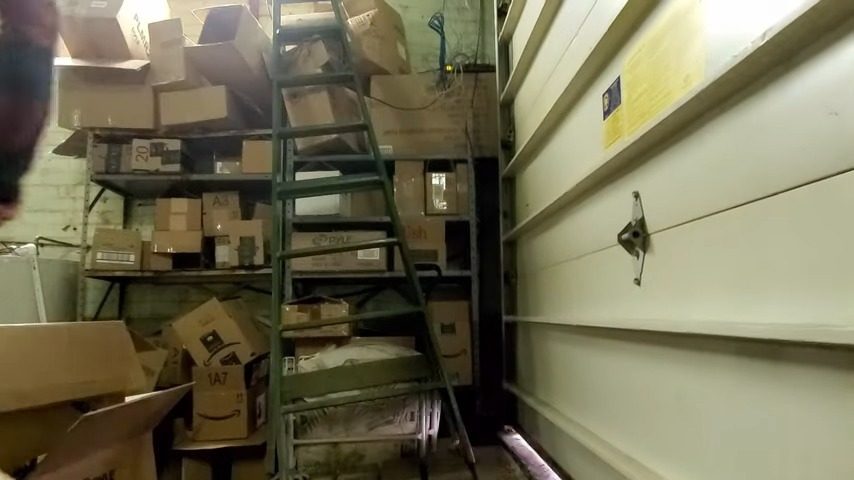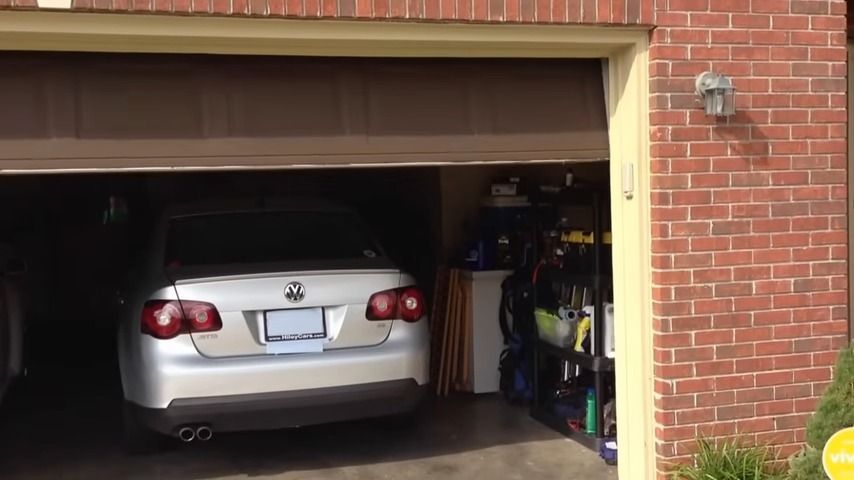Affiliate Disclosure: We may earn money or products from the companies mentioned in this post.
Living in a sunny climate can bring a lot of great benefits, like having plenty of sunshine to enjoy and an extended growing season. However, it can also pose some unique challenges, like making sure your garage door functions properly.
If you’re having a problem with your garage door not closing when it’s sunny, you may be wondering why this is happening and what you can do to fix it. We’ll explain the possible causes of your garage door not closing when it’s sunny and offer tips on how to solve this problem.
Why Does My Garage Door Not Close When it’s Sunny?
When your garage door doesn’t close properly, it can be quite annoying. It’s important to remember that there are a few potential causes for why this might happen, and being aware of the issue is the first step in rectifying the problem.
Here are several reasons why your garage door may not be closed during the summer:
1. Dirty Or Misaligned Photo Eyes
The photo eyes are safety sensors located on either side of the garage door that detect if there is anything in the way of the door as it closes.
If these sensors are dirty or misaligned, they may not be able to detect objects properly, preventing the door from closing.
2. Malfunctioning Opener
If the opener’s logic board is malfunctioning or the opener’s battery is dead, it may not be able to close the door properly.
3. Track And Roller Misalignment
The metal track and rollers can expand and contract with the heat, which can cause misalignment and prevent the door from closing properly.
4. Warped Door
The heat can cause the door to warp and not fit properly in the tracks, preventing it from closing.
5. Damaged Or Worn-Out Components
Over time, the various components of a garage door, such as springs, cables, and rollers, can become worn out or damaged, which can cause issues with the door’s ability to close.
6. Overheating Motor
During the summer, the garage door opener motor can overheat and shut down temporarily.
7. Obstruction
Something blocking the path of the door, such as a lawn mower or bike, can prevent the door from closing.
8. Heat-Sensitive Material
If your door is made of heat-sensitive material such as wood, it can shrink or expand due to temperature change and prevent it from closing properly.
How To Troubleshoot And Prevent Garage Door Faults During Summer
Preventing your garage door from being faulty during the Summer months is a crucial part of garage door maintenance. To get the most out of your garage door, follow these simple tips to ensure optimal performance during the warmer weather:
1. Inspect your Garage Door Regularly
Regular inspection of your garage door will help you identify any potential faults or malfunctions early on before they become more serious.
Visually inspect all the moving parts, such as the pulleys, cables, springs, and tracks, and make sure they are in good condition and free of any damage or defects.
2. Lubricate Moving Parts
Make sure to lubricate the moving parts of your garage door regularly with industrial oil to prevent the moving and metal parts from getting stiff or rusting out.
3. Check The Alignment Of The Track And Rollers
The heat can cause the metal track and rollers to expand, which can cause misalignment. Regularly check the alignment and make adjustments as necessary to ensure that the door is able to close properly.
4. Insulate The Garage
Insulating your garage will help keep the temperature inside the garage at a more moderate level and reduce the chance of your door warping.
5. Keep the opener cool
Make sure the opener is not in direct sunlight or near heat sources, as this can cause the motor to overheat and shut down temporarily.
6. Monitor the temperature
Keep an eye on the temperature in your garage, as extreme heat can cause damage to the door and opener.
7. Use a sunshade
Consider installing a sunshade over the door to reduce the amount of direct sunlight that hits the door and opener.
8. Use a high-quality opener
Invest in a high-quality opener that is designed to withstand extreme temperatures.
By following these steps, you can help prevent faults with your garage door during the summer and ensure that it continues to function properly.
Will Insulation Prevent My Garage Door From Overheating During Summer?
Yes, Insulating your garage can help prevent your garage door from overheating during the summer by reducing the amount of heat that enters the garage. Insulation helps keep the temperature inside the garage more moderate, which in turn reduces the chance of the door warping or the opener motor overheating.
However, insulation alone may not be enough to prevent your garage door from overheating. The garage door itself can also absorb heat, especially if it’s made of metal.
Finally, it’s also important to note that insulation will not prevent issues with the garage door opener’s motor overheating, which is caused by the opener running for prolonged periods in high temperatures.
Can Warm Temperatures Damage My Garage Door Sensors?
Yes, warm temperatures can damage your garage door sensors. The sensors are sensitive electronic components that can be damaged if exposed to extreme weather elements. High temperatures can cause them to overheat, leading to malfunctions and eventual failure.
Hot temperatures can also cause the sensors to expand, which may lead to a distorted reading or a complete disruption in the signal.
Additionally, excessive heat can cause the plastic housing of the sensor to weaken, leading to cracks and breakage. To protect your garage door sensors from the damaging effects of high temperatures, it is important to keep them shaded and cool during the summer months. Also, it is recommended to inspect your sensors regularly to ensure they are working properly.
What Is The Most Common Cause Of My Garage Door Not Closing When It’s Sunny?

The most common cause of a garage door not closing when it’s sunny is a problem with the photo eyes, which are safety sensors located on either side of the garage door that detect if there is anything in the way of the door as it closes.
If the photo eyes are dirty or misaligned, they may not be able to properly detect objects, preventing the door from closing.
Can The Heat Cause Damage To My Garage Door?
Yes, extreme heat can cause damage to your garage door by warping the metal or causing the door to expand and not fit properly in the tracks. It can also cause damage to the opener’s motor, causing it to overheat and shut down.
Can Insulation Prevent My Garage Door From Overheating During Summer?
Insulating your garage can help prevent your garage door from overheating during the summer by reducing the amount of heat that enters the garage.
Insulation helps keep the temperature inside the garage more moderate, which in turn reduces the chance of the door warping or the opener motor overheating. However, insulation alone may not be enough to prevent your garage door from overheating.
What Should I Do If My Garage Door Won’t Close When It’s Sunny?
If your garage door won’t close when it’s sunny, you should first check the alignment of the photo eyes and clean them if necessary. Next, check the batteries in the opener and replace them if needed.
And finally, you should check the alignment of the track and rollers and make adjustments as necessary. If the issue persists, it may be best to call a professional to inspect and repair your garage door.
Can Warm Temperature Damage My Garage Door Sensors?
Warm temperatures alone are unlikely to cause damage to your garage door sensors, but the expansion and contraction of the plastic parts can cause misalignment of the sensors, which can cause them to malfunction.
Additionally, extreme heat can cause the wires or connections of the sensors to expand or contract, which can damage the sensors or cause them to malfunction.
Conclusion
Garage door not closing when it’s sunny can be caused by a variety of factors, including dirty or misaligned photo eyes, a malfunctioning opener, track and roller misalignment, a warped door, damaged or worn out components, opener motor overheating, obstruction, and heat-sensitive materials.
These issues can be prevented or fixed by regular maintenance and troubleshooting, such as keeping the photo eyes clean, checking the opener’s batteries, checking the alignment of the track and rollers, lubricating the moving parts, inspecting the door, keeping the area around the garage door clear, insulating the garage, and calling a professional if necessary.


